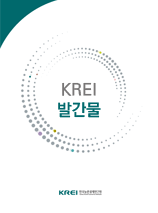
- Goals and Strategies to Reduce Greenhouse Gas Emissions in the Agriculture Sector
-

-
○ The global community has realized mandatory reduction of GHG emissions through international conventions to cope with environmental change which can be caused by climate change.
- The Kyoto Protocol was adopted in 1997 and the duty of reducing GHG emissions was imposed based on advanced countries by 2020.
- In December 2015, a post-2020 new climate regime which both advanced and emerging countries participated in is expected to be established.
○ Korea has also presented the goal of GHG emissions reduction by preemptively responding to international conventions.
- The Korean government set the voluntary reduction target of 30% compared to business-as-usual (BAU) levels by 2020.
- For a new climate regime in June this year, the government set the reduction target of 37% by 2030 compared to BAU levels; the reduction target of each sector will be determined in 2016.
○ As the GHG emissions reduction target has been already assigned to the agriculture sector, strategy for reduction is being carried out. The sector has responded to setting up the reduction target for 2030.
- The reduction target for the agriculture sector by 2020 is 1,485,000 tons, which is 5.2% compared to BAU levels. To accomplish this target, it is necessary to make efforts to address difficulties in expanding business for GHG emissions reduction initiatives.
- The reduction goal in the agriculture sector for the year of 2030 is expected to be similar to the target for 2020 or be slightly expanded.
○ Major countries such as Japan, Australia, and the U.K. have employed strategies to reduce GHG emissions in the agriculture sector.
- Japan provides direct payment with menus for environmentally sound agriculture and aggressively promotes low-carbon agricultural and livestock products to consumers.
- Australia and Japan create profit source for farmhouses by providing offset credits based on the emission trading system.
- The U.K. implements biomass strategy such as promoting the treatment of animal manure by using microbes and supporting bioenergy grants.
○ The GHG emissions reduction goal for 2030 in the agriculture sector needs to be determined at the level of minimizing the impact on the agriculture sector and encouraging the implementation of the low-carbon agriculture system. It is also necessary to conduct strategy continuously to achieve the GHG emissions reduction target for 2020 and 2030.
- As core strategies to reduce GHG emissions in the agriculture sector, it is necessary to expand major businesses regarding GHG emissions reduction continuously, carry out R&D activities for developing cultivation technology to support the realization of low-carbon agriculture, implement carbon-trade reduction business by using the emission trading market, introduce the environmental mutual compliance system, broaden the consumption of low-carbon agricultural and livestock products, and establish a system for statistics, calculation, report, and verification. -
목차
요약문
○ The global community has realized mandatory reduction of GHG emissions through international conventions to cope with environmental change which can be caused by climate change.
- The Kyoto Protocol was adopted in 1997 and the duty of reducing GHG emissions was imposed based on advanced countries by 2020.
- In December 2015, a post-2020 new climate regime which both advanced and emerging countries participated in is expected to be established.
○ Korea has also presented the goal of GHG emissions reduction by preemptively responding to international conventions.
- The Korean government set the voluntary reduction target of 30% compared to business-as-usual (BAU) levels by 2020.
- For a new climate regime in June this year, the government set the reduction target of 37% by 2030 compared to BAU levels; the reduction target of each sector will be determined in 2016.
○ As the GHG emissions reduction target has been already assigned to the agriculture sector, strategy for reduction is being carried out. The sector has responded to setting up the reduction target for 2030.
- The reduction target for the agriculture sector by 2020 is 1,485,000 tons, which is 5.2% compared to BAU levels. To accomplish this target, it is necessary to make efforts to address difficulties in expanding business for GHG emissions reduction initiatives.
- The reduction goal in the agriculture sector for the year of 2030 is expected to be similar to the target for 2020 or be slightly expanded.
○ Major countries such as Japan, Australia, and the U.K. have employed strategies to reduce GHG emissions in the agriculture sector.
- Japan provides direct payment with menus for environmentally sound agriculture and aggressively promotes low-carbon agricultural and livestock products to consumers.
- Australia and Japan create profit source for farmhouses by providing offset credits based on the emission trading system.
- The U.K. implements biomass strategy such as promoting the treatment of animal manure by using microbes and supporting bioenergy grants.
○ The GHG emissions reduction goal for 2030 in the agriculture sector needs to be determined at the level of minimizing the impact on the agriculture sector and encouraging the implementation of the low-carbon agriculture system. It is also necessary to conduct strategy continuously to achieve the GHG emissions reduction target for 2020 and 2030.
- As core strategies to reduce GHG emissions in the agriculture sector, it is necessary to expand major businesses regarding GHG emissions reduction continuously, carry out R&D activities for developing cultivation technology to support the realization of low-carbon agriculture, implement carbon-trade reduction business by using the emission trading market, introduce the environmental mutual compliance system, broaden the consumption of low-carbon agricultural and livestock products, and establish a system for statistics, calculation, report, and verification.저자정보
저자에게 문의
구매안내
KREI의 출판물은 판매 대행사 (정부간행물판매센터)와 아래 서점에서 구입 하실 수 있습니다.
판매대행사
- (주)정부간행물판매센터http://www.gpcbooks.co.kr사이트 바로가기
- 서울특별시 중구태평로 1가 25번지
- TEL 02) 394-0337, 734-6818
- FAX 02) 394-0339
판매서점
판매서점 교보문고 http://www.kyobobook.co.kr/ 영풍문고 http://www.ypbooks.co.kr/ 알라딘 http://www.aladin.co.kr/ 활용도 정보
활용도 정보 상세정보 조회 좋아요 다운로드 스크랩 SNS공유 6097 0 7 0 0 -
- Suggestions to Promote the Hometown Love Donation System
- Gouk, Seungyong
- 2022.11.25
- KREI 이슈리포트
-
- Ten Years of Korea-U.S. FTA: focusing on agri-food trade
- Kim, Kyungphil
- 2022.06.09
- KREI 이슈리포트
-
- Impacts of Ukraine-Russia Conflict on Global Grain Prices
- Kim, Jongjin
- 2022.03.31
- KREI 이슈리포트
-
- The Impacts of the COVID-19 on the Korean Agricultural Market
- Seo, Hong-Seok
- 2020.06.05
- KREI 이슈리포트
-
- 10 Agricultural Policy Issues of Korea in 2019
- Jeong, Minkook
- 2019.01.29
- KREI 이슈리포트
-
- State of Korean and Overseas Markets for Environment-Friendly Agricultural Products and Challenges 2018
- Jeong, Hakkyun; Sung, Jaehoon; Lee, Hyeonjeong
- 2018.09.12
- KREI 이슈리포트
-
- Measures to Establish the Water-Energy-Food Nexus for Agricultural Resource Management
- Sung, Jaehoon; Cho, Wonju; Lee, Hyeonjeong
- 2018.09.05
- KREI 이슈리포트
-
- Changes in the Trade of Agricultural and Livestock Products and Implications after Seven Years from the Enforcement of the Korea-EU FTA
- Song, Woojin; Lee, Hyunkeun; Myeong, Suhwan; Yoo, Juyoung
- 2018.06.29
- KREI 이슈리포트
-
- 10 Agricultural Policy Issues of Korea in 2018
- Kim, Byoungryul
- 2018.01.22
- KREI 이슈리포트
-
- Income Changes by Type of Farm Household and Implications
- Woo, Byungjoon
- 2017.11.30
- KREI 이슈리포트
-
- 10 Agricultural Policy Issues of Korea in 2019
- Jeong, Minkook
- 2019.01.29
- KREI 이슈리포트
-
- Income Changes by Type of Farm Household and Implications
- Woo, Byungjoon
- 2017.11.30
- KREI 이슈리포트
-
- 10 Agricultural Policy Issues of Korea in 2018
- Kim, Byoungryul
- 2018.01.22
- KREI 이슈리포트
-
- Job Creation Potential for the Youth and Challenges in the Agricultural Industry
- Ma, Sangjin
- 2017.01.01
- KREI 이슈리포트
-
- Implementation Plan and Implications of International Development Cooperation Projects for Agriculture in 2017
- Heo, Jang
- 2017.04.28
- KREI 이슈리포트
-
- 2016 Production Status and Market Prospect of Eco-Friendly Agricultural Products at Home and Abroad
- Jeong, Hakkyun; Lee, Hyejin; Kim, Changgil
- 2016.11.30
- KREI 이슈리포트
-
- The Impacts of the COVID-19 on the Korean Agricultural Market
- Seo, Hong-Seok
- 2020.06.05
- KREI 이슈리포트
-
- Global Spread of Saemaul Undong for Rural Development in Developing Countries
- Heo, Jang; Lee, Yoonjung
- 2016.11.30
- KREI 이슈리포트
-
- 70 Years' Achievements and New Challenges of Korean Agriculture and Rural Communities
- Song, Miryung; Moon, Hanpil; Kim, Meebok; Seong, Jooin; Lim, Jieun
- 2015.09.15
- KREI 이슈리포트
-
- Strategy for Creative Economy, and Vitality in Agriculture and Rural District
- Park, Joonki
- 2013.06.18
- KREI 이슈리포트
의견남기기


